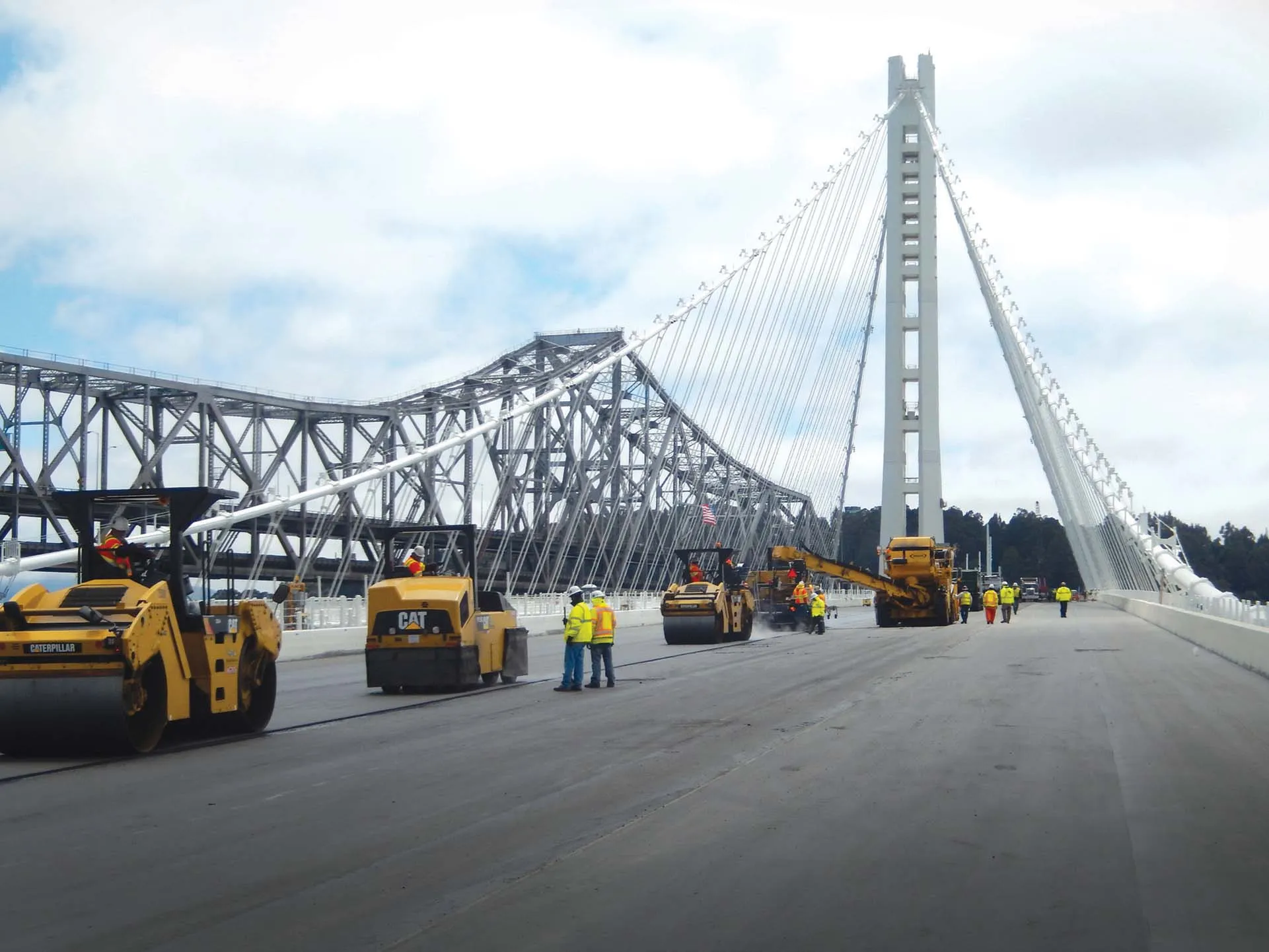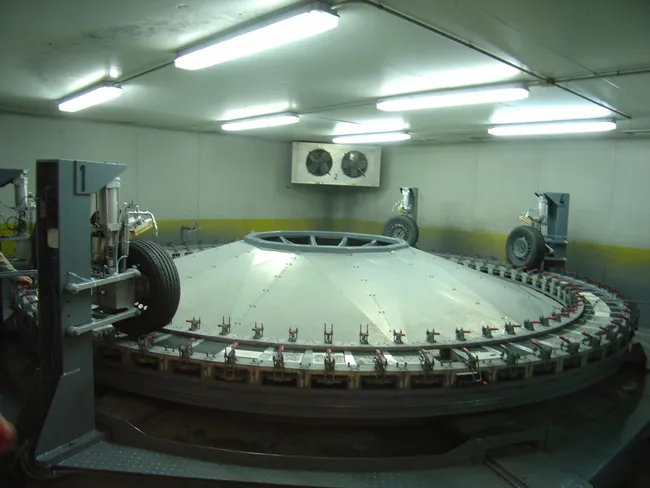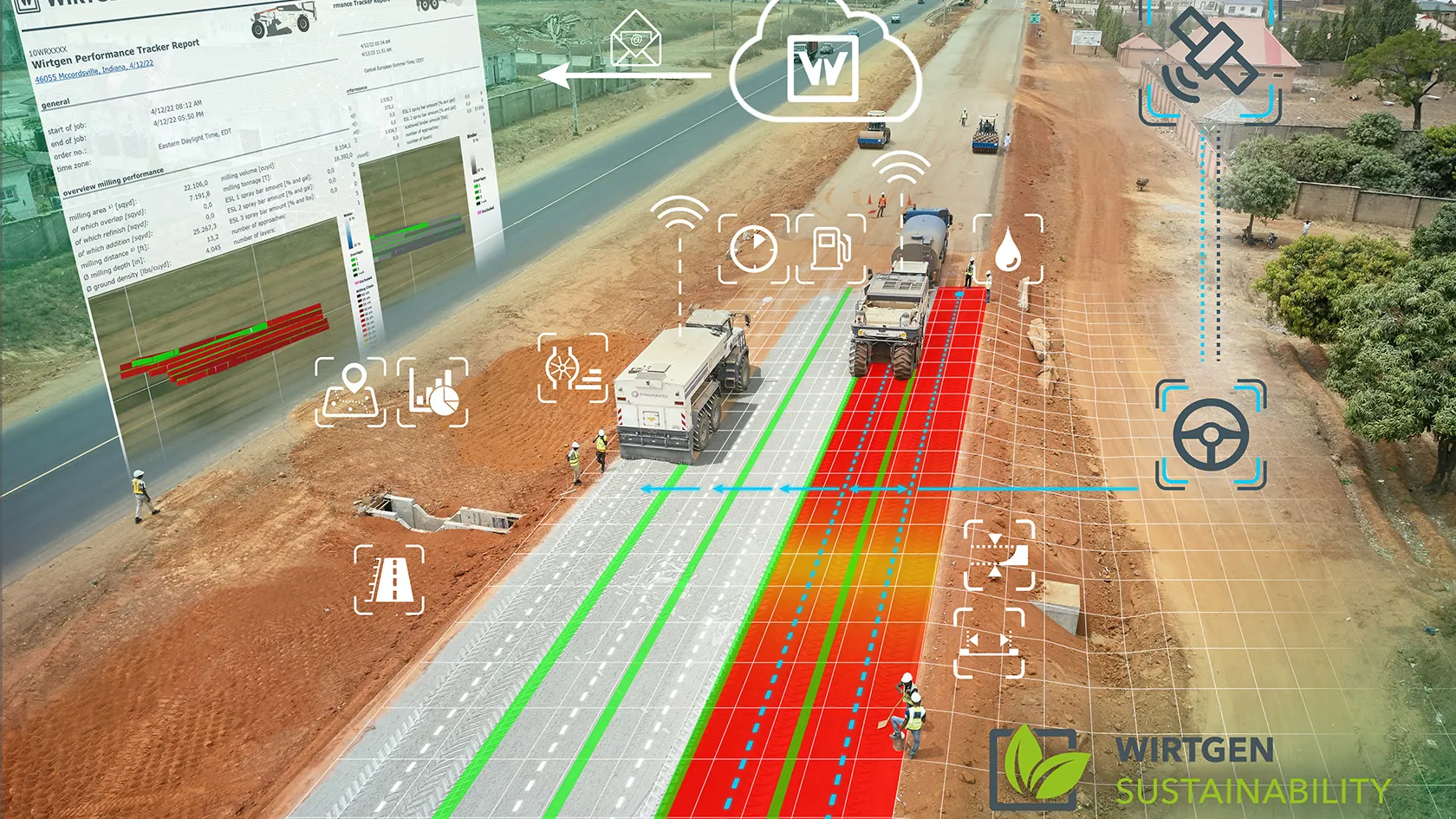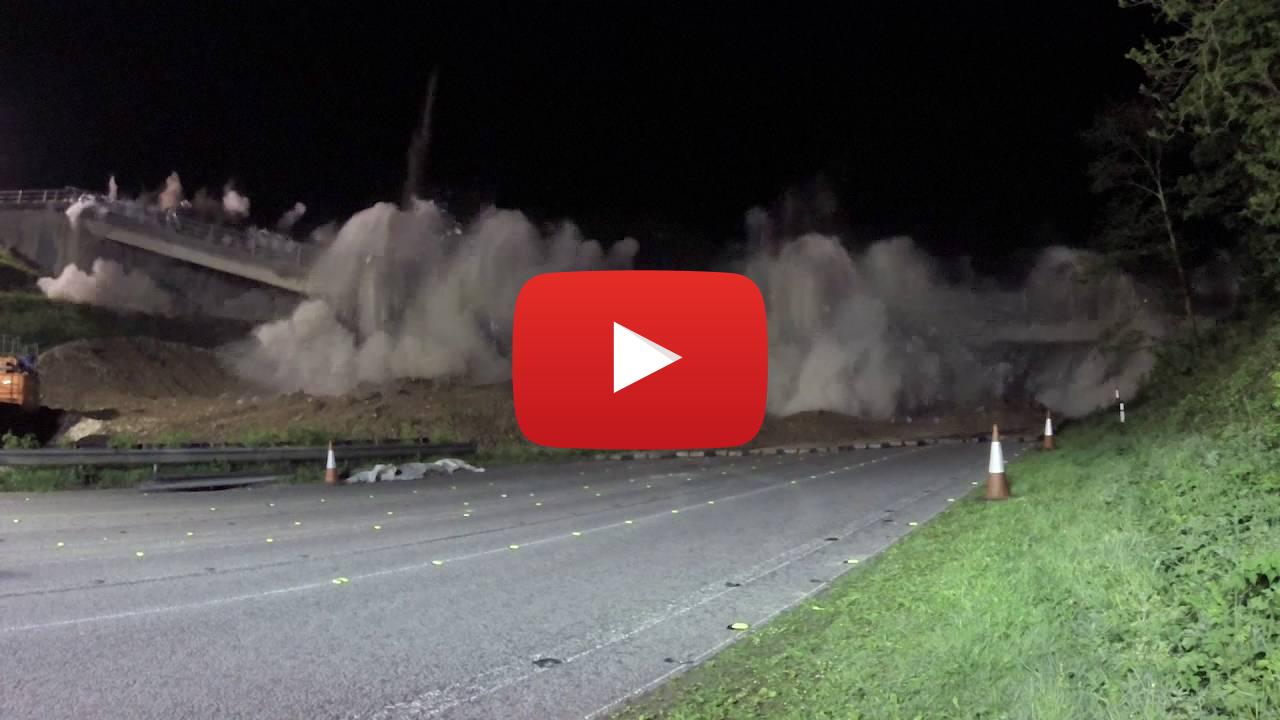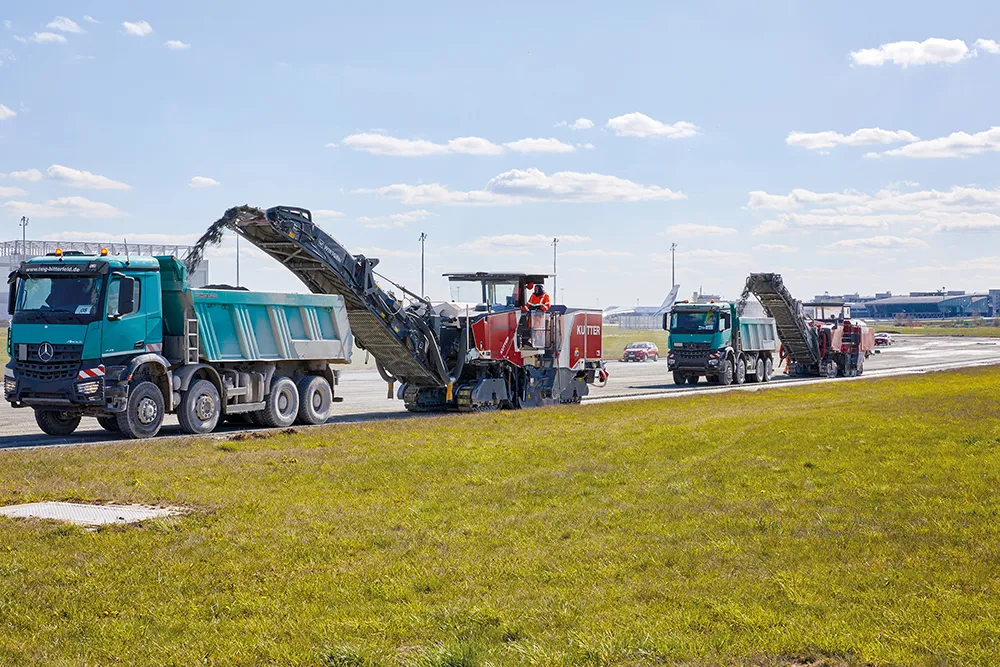
No less than 15 planers were used for the job, one of the world’s biggest ever milling projects. The airport is one of Germany’s largest and is a key international facility for airfreight. The refurbishment of Leipzig/Halle Airport has been carried out by contractor Kutter & Co. The first phase of the project involved the removal of the concrete of the north runway and the associated taxiways within a 30-day slot. The resurfacing could only begin after the completion of this first phase, which was very challenging and involved removing 350,000tonnes of concrete reinforced with steel rebar from an area of 300,000m2.
The continuously reinforced concrete pavement (CRCP) was extremely hard and abrasive but had to be removed by this cutting method within the tight timeframe.
Concrete milling is already an established technology and technological advances mean that most grades of concrete pavement can be removed cost-efficiently. The removal of reinforced concrete pavements containing tie-bars, dowels and rebar mats is possible. At the same time, selective removal enables the separation of concrete layers with different properties and, consequently, also the reduction of contaminated material. In addition, milled concrete can be recycled without further treatment.
Concrete cancer was the reason for the need to resurface the 3,600m of runway and taxiways. This alkali-silica reaction occurs when aggregate constituents used in the production of the concrete come into contact with water. The silica reacts with the cement contained in the concrete and forms a gelatinous mass. The ensuing expansion begins to exert pressure within the concrete and can lead to an explosive reaction if untreated.
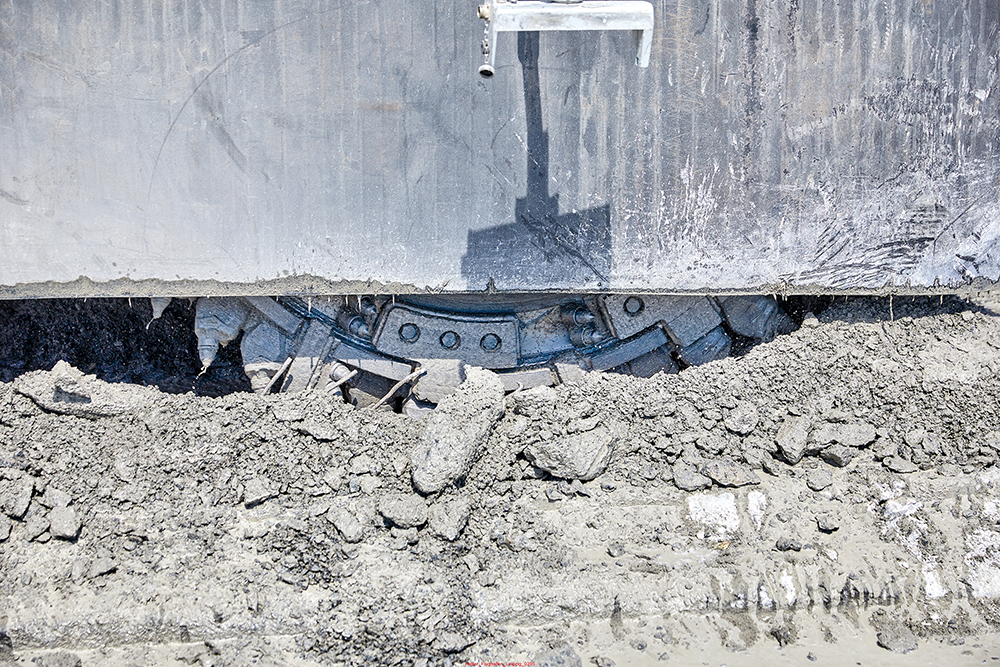
A project of this magnitude requires high-performance machines and optimal cutting tools for the milling drum. The Wirtgen W 250i milling machines used were carried additional ballast to ensure better traction and drum cutting performance. The machines were fitted with ECO milling drums featuring fewer picks at larger tool spacings than is the case with standard milling drums. The lower number of cutting tools reduces cutting resistance, making it possible to mill harder concrete. To meet the target of removing 350,000tonnes of concrete in 30 days, each machine had to mill off an average of over 1,100tonnes concrete/day. The first step was the fastest possible removal of the concrete surface in layers. After this, machines equipped with 3D levelling technology delivered the specified target height for the subsequent resurfacing. A total of around 60 employees from Kutter worked on the project in two shifts to meet the deadline. A total of 12,500 truck loads were required to shift the 330,000m3 of concrete removed.
“In order to get through this challenging project and deliver within the tight deadline, we constantly had 10 (and sometimes 14)
W 250 Fi class large milling machines working simultaneously in two shifts. We also always had backup machines onsite as reserves,” according to Bernhard Fischer, project manager and branch manager at Kutter
The planning of the project began at an early stage to assure a smooth process chain. Eight months before the project start, the specialists from Wirtgen and Kutter began conducting a series of tests. The experts agreed on the type of round-shank pick required to achieve optimal milling performance and long service life. This allowed accurate consumption estimates for picks and wearing parts and the procurement of sufficient stocks for the site, helping to minimise downtime once work began.
The concrete removed during the airport project in Leipzig was temporarily stockpiled close to the project site and recycled for use in the subsequent project phases as the base layer for the new runway. Short haulage distances and minimal new material requirements also reduced fuel consumption.
In addition, the Wirtgen cold milling machines themselves offered a broad spectrum of machine technologies. Optimised speed ranges controlled by Wirtgen Mill Assist and engine-temperature-controlled fan speeds helped lower fuel use. Automatic activation and deactivation of the water spraying system and milling-performance-dependent water metering meanwhile helped reduce water consumption.


